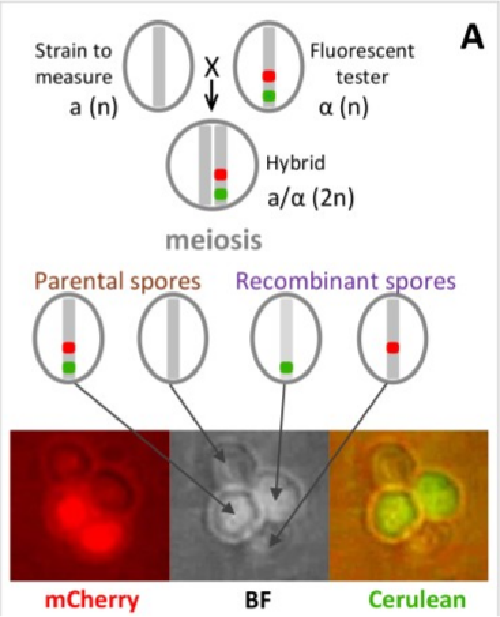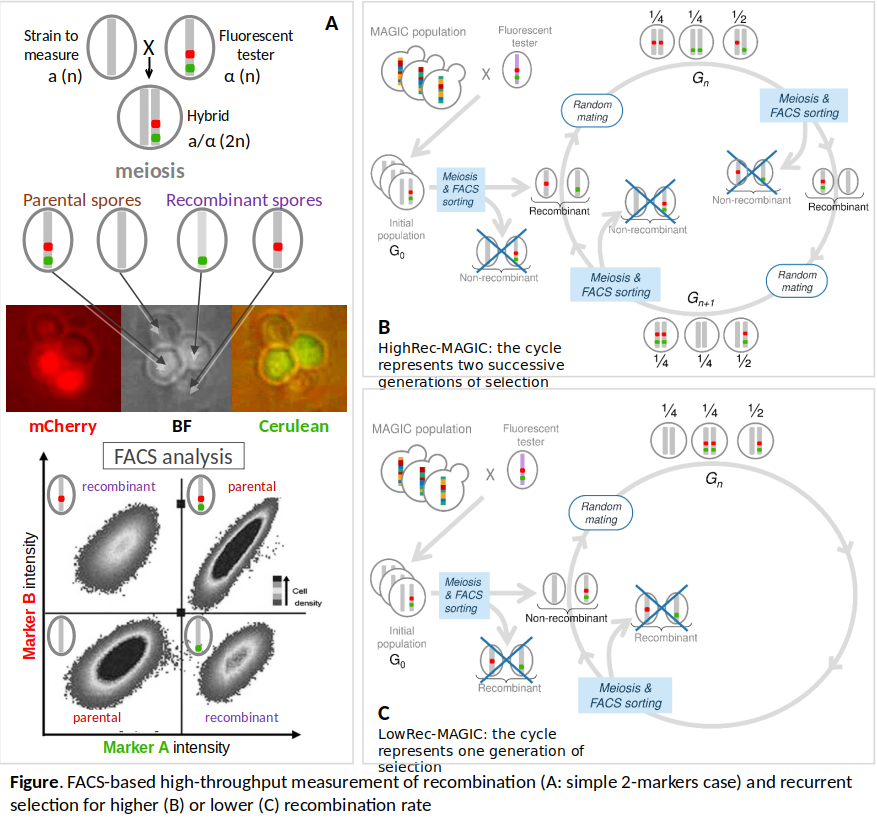
L’équipe BASE - Biologie de l’Adaptation et Systèmes en Évolution recrute un(e) postdoc dans le cadre du projet ANR EVOLREC ; le projet étudie les causes et conséquences évolutives de la variation quantitative du taux de recombinaison méiotique.
Scientific context and research questions
Meiotic recombination through crossing-over (CO) is a key process with major implications in genome evolution, dynamics of trait adaptation and organismal fitness. However, CO number and positionning are strongly regulated but the selective pressures that have led to these regulations remain unclear. In fact, the interplay between recombination and adaptation is complex because COs can modulate the speed of adaptation via exploiting standing genetic variation, and inversely, evolutionary processes leading to adaptation can indirectly drive changes in CO rates. The postdoc will address the following scientific questions:
- Is recombination rate able to evolve as a response to artificial directional selection ?
- What are the CIS and TRANS genetic determinants of CO number and positioning ?
- What is the interplay between recombination and adaptation to stress ?
Experimental approaches
To address these questions experimentally in S. cerevisiae, we have already developed a high-throughput method to measure recombination and sort recombinant spores by FACS (Raffoux et al. Yeast 2018,). We will carry out divergent recurrent selection for higher or lower recombination rate in a yeast population with large genetic diversity reproducing sexually. Evolved populations will then be pool-sequenced to detect recombination QTLs based on allelic frequency changes. Then we will use the evolved populations for experimental evolution under salt stress, to investigate the joint evolution of fitness, recombination rate, and allele frequencies at recombination QTLs identified previously. All ressources - biological material, tools, and methods - necessary to the project have already been produced or obtained.

Working environment
Our lab is located in the Paris-Saclay campus, a large concentration of scientific and higher education institutions in close proximity to the Gif-sur-Yvette CNRS center, Paris-Saclay university, and at 45 minutes by train from Paris.
Key-words
meiotic recombination, experimental evolution, S. cerevisiae
Required skills
PhD in genetics or evolution, lab work in microbiology or molecular biology (yeast genetics is a plus), quantitative data analysis, spoken and written english
Contacts
Applications should be sent by e-mail to Matthieu Falque